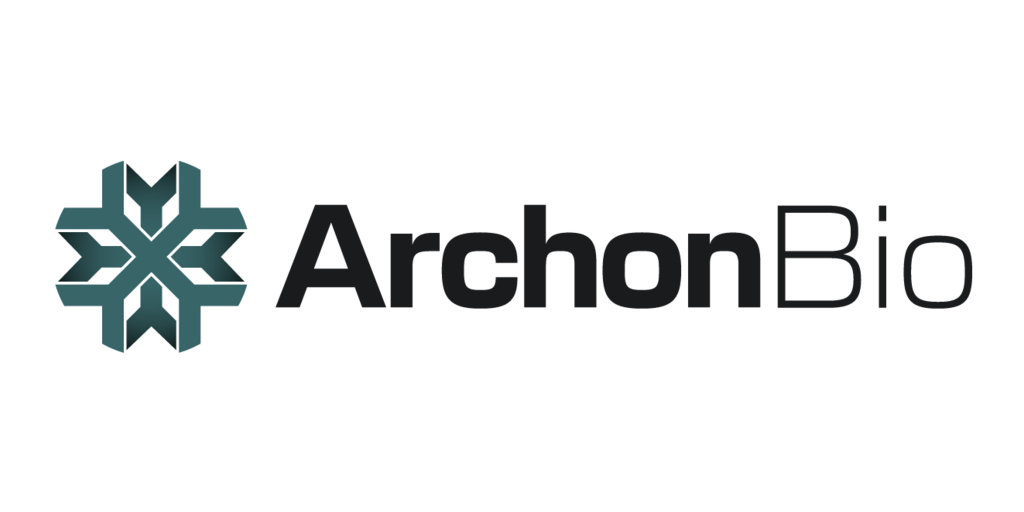- AI-driven Antibody Cage (AbC) technology designed to unlock powerful therapeutic targets beyond the reach of existing modalities
- Seed financing of $20 million led by Madrona Ventures
SEATTLE--(BUSINESS WIRE)--Archon Biosciences, a biotechnology company pioneering computationally designed Antibody Cages (AbCs) to unlock powerful therapeutic targets beyond the reach of existing modalities, today announced its emergence from stealth with $20 million in seed financing. The financing was led by Madrona Ventures with participation from DUMAC Inc., Sahsen Ventures, WRF Capital, Pack Ventures, Alexandria Venture Investments and Cornucopian Capital.
AbCs are a completely novel class of biologic composed of antibodies combined with a boundless set of AI-generated protein structures that have never existed in nature. Precise control over AbC structure provides the ability to tune both how they distribute in the body and engage their cellular targets with high specificity and potency to establish a new gold standard in drug development.
“There are many high-profile cases where we understand not only a target’s biology but also why past attempts to drug the target have failed in the clinic. These key disease levers are at our fingertips, but we lack the tools to safely and effectively engage them,” said James Lazarovits, Ph.D., co-founder and chief executive officer. “Our transformational Antibody Cage technology is designed to drug many of these challenging targets underlying diseases of paramount urgency and create better treatment options for patients. With the support of our investors, we have developed a proprietary protein design platform coupled with rapid in-house manufacturing and testing to revolutionize how biologics are developed.”
Archon’s platform leverages AI-driven advances in computational protein design that were recognized earlier this month by the 2024 Nobel Prize in Chemistry for their ability to create novel proteins with desired functions. One of this year’s three laureates, University of Washington (UW) Professor of Biochemistry and Howard Hughes Medical Institute investigator Dr. David Baker, Ph.D., leads the Institute for Protein Design (IPD), where he co-invented the Archon platform alongside co-founders and former UW Research Faculty and IPD Translational Investigators Dr. Lazarovits and Dr. George Ueda, Ph.D.
Archon directly applies generative protein design to drug development by not only conceiving but readily manufacturing new molecular entities for preclinical investigation. AbC design combines off-the-shelf antibodies and computationally designed binding proteins that self-assemble into exquisitely precise and geometrically defined nanostructures. Based on their unique geometries, AbCs behave in the body and interact with their targets differently than conventional biologics, with much greater control over functional properties such as target engagement and biodistribution.
During manufacturing, antibodies are incorporated into AbCs without the need to modify sequence or alter established production processes. As a result, AbC assembly is massively parallelizable, easily automated and retains the industry-proven binding affinity and specificity of antibodies while enabling rapid exploration of a new geometric design and application space.
The Archon team has more than a decade of experience creating designed proteins for therapeutic applications. Dr. Ueda, chief technology officer, spent over 10 years at the IPD under the directorship of Dr. Baker and was one of the first scientists to show the therapeutic utility of designed proteins through his work with computationally designed vaccines and signaling proteins.
The translational academic group of Drs. Ueda and Lazarovits received initial grants totaling over $7 million from IPD’s Translational Program, Washington Research Foundation, The National Institutes of Health, The Department of Defense and the Washington Entrepreneurial Research Evaluation and Commercialization Hub (WE-REACH) to develop the AbC platform and early preclinical candidates. The group later licensed the AbC technology from UW.
“AbCs are a revolutionary approach to antibody therapeutics that creates immediately actionable engineering solutions to intractable drug development challenges,” said Chris Picardo, Partner at Madrona Ventures, and Board Member of Archon Biosciences. “James and George have assembled a team of world-class scientists and pharmaceutical industry veterans that is able to create new preclinical molecules with extraordinary speed and accuracy. We’re excited to partner with them at the forefront of generative protein design and realize the myriad of possibilities to engage currently undruggable targets and pathways to improve human health.”
About Archon Biosciences
Archon is a biotechnology company developing computationally designed proteins to unlock powerful therapeutic targets that lie beyond the reach of existing modalities and to better treat disease. Archon directly applies generative protein design to rapidly manufacture Antibody Cages (AbCs), a new class of biologics with unique potency and differentiated biodistribution. AbCs integrate the unparalleled binding affinity and specificity of antibodies into novel self-assembling nanostructures designed to overcome the most difficult challenges in drug development. For more information visit www.archon.bio
Contacts
Media:
Justin Chen
Ten Bridge Communications
609-578-7230
jchen@tenbridgecommunications.com





